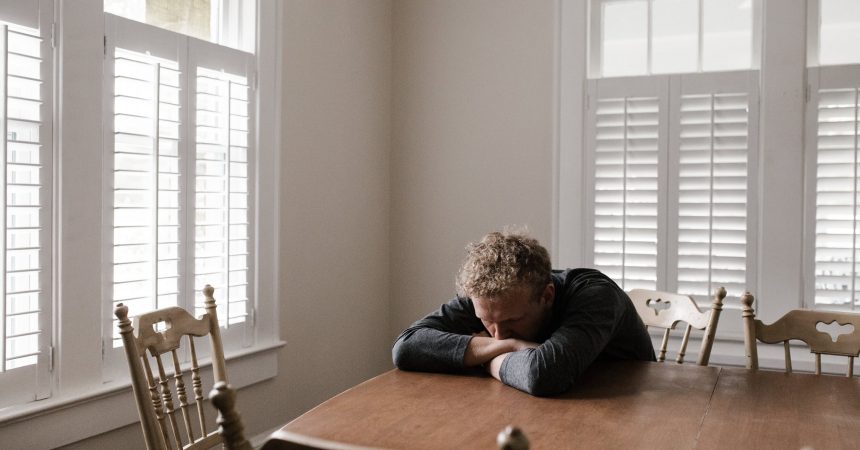In modern society, we have learned to value our mental health. Some organizations protect people with mental health disorders, whether through civil rights services, providing access to treatment, funding research, or the gradual cultural change and recognition that mental health is not only important but essential. While we still have a long way to go and a lot to learn, there are organizations dedicated to helping people with mental health disorders assimilate into society so that they can live their healthiest, most productive lives.
An Old Way of Thinking
Mental health disorders are not a new concept, although our thoughts, feelings, and knowledge of mental illness have drastically changed even in just the past decade. People used to think that anyone who deviated from societal norms was potentially mentally ill and needed to be controlled so that society will be protected from them. This negative perspective of mental illness came, in part, from not understanding the science behind mental health.
Some people believed that mental illness was supernatural, while others believed that it was a symptom of some type of physical problem. While lack of medical research and knowledge led some people astray, some people gravitated towards research for answers. For instance, in Ancient Greece, Hippocrates, who is considered the father of medicine, believed in the importance of having a healthy mind and a healthy body.
In the 16th century, hospitals and confinement laws were put into place to keep people who suffered from mental health disorders away from society. However, in the early 19th century, people began to protest the practices in those mental health facilities. People were especially concerned about overcrowding of mental hospitals as well as neglect. In 1908, Richard Beers, who had been in and out of three hospitals himself, published a book entitled “A Mind That Found Itself,” which described his experiences in mental institutions and the abuse that he suffered through. Books like this began the spread of concern for better mental health treatment nationwide.
The Birth of Modern Terms
In the early 20th century, mental health was sometimes referred to as mental hygiene. The term mental hygiene dates back to 1843. However, there have been no found references of mental health as a field of study until 1946. By the 1920s, the social and political climate was changing around the perception of mental illness, and people were taking action to create treatments that aren’t dehumanizing, neglectful, or abusive. The idea of preventive care, investing money to learn more about mental illness, and cooperating with government programs and facilities that supported mental health was becoming a more popular ideology.
In 1947 the first grant was given for the intended purpose of researching mental issues and was entitled “The Basic Nature of The Learning Process.” The National Institute of Mental Health (NIMH) was established in 1949. John F Kennedy was the first president to sign a bill that created federal support for people struggling with mental illness.
People’s attitudes towards mental illness were swiftly changing as research centers were being supported to study different areas of mental illness, which eventually included the relationship between mental illness and poverty, crime, minority groups, children, the elderly, victims of abuse, natural disasters, and more.
Under John F. Kennedy, mental health treatment shifted to be more community-based. However, perception, policies, and treatment of mental illnesses are still constantly changing and adapting as more and more research is conducted. Stigmas still surround mental illnesses; however, things continue to progress in reducing stigma and expanding access to support.
Mental Health Moving Forward
Among the many changes in mental health, the definition of mental health and how specific disorders are defined in the Diagnostic and Statistical Manual of Mental Disorders (DSM) have evolved tremendously. In the 1960s, alcohol and narcotic abuse was officially considered a mental illness. In the 1970s, the DSM was revised so that homosexuality was not included as a mental disorder. In 2000, the DSM IV underwent several revisions, which included defining autism as a spectrum disorder, among other changes that helped specify treatment.
Moving forward, it is important to destigmatize some of the negative attitudes that might remain surrounding mental illness. Additionally, making treatment more available to those who can’t afford it can allow more access for those with mental illness. Further defining mental illnesses on a spectrum of severity and continuing to research and collect more information will help people with mental illnesses live healthy and happy lives.
Mental illness has a long history of being misunderstood and mistreated. However, people have been advocating for better treatment, research, and care for over a century. There are more services and treatments to help people suffering from mental health problems now than ever before. Shoreline Recovery Center is here to help you with any of your mental health needs. We provide a variety of treatments, including medication-assisted treatment (MAT) and different types of psychotherapy.
Our professionals believe in the importance of building a mental health treatment plan that will best suit your specific needs and skillset. Everyone’s mental health journey is different, but no one should have to face their demons alone, which is why Shoreline Recovery offers several community programs to help you connect with your peers. If you or a loved one is struggling to manage mental health-related symptoms or substance use problems, please feel free to reach out and call (866) 278-8495 to learn more about our programs.







